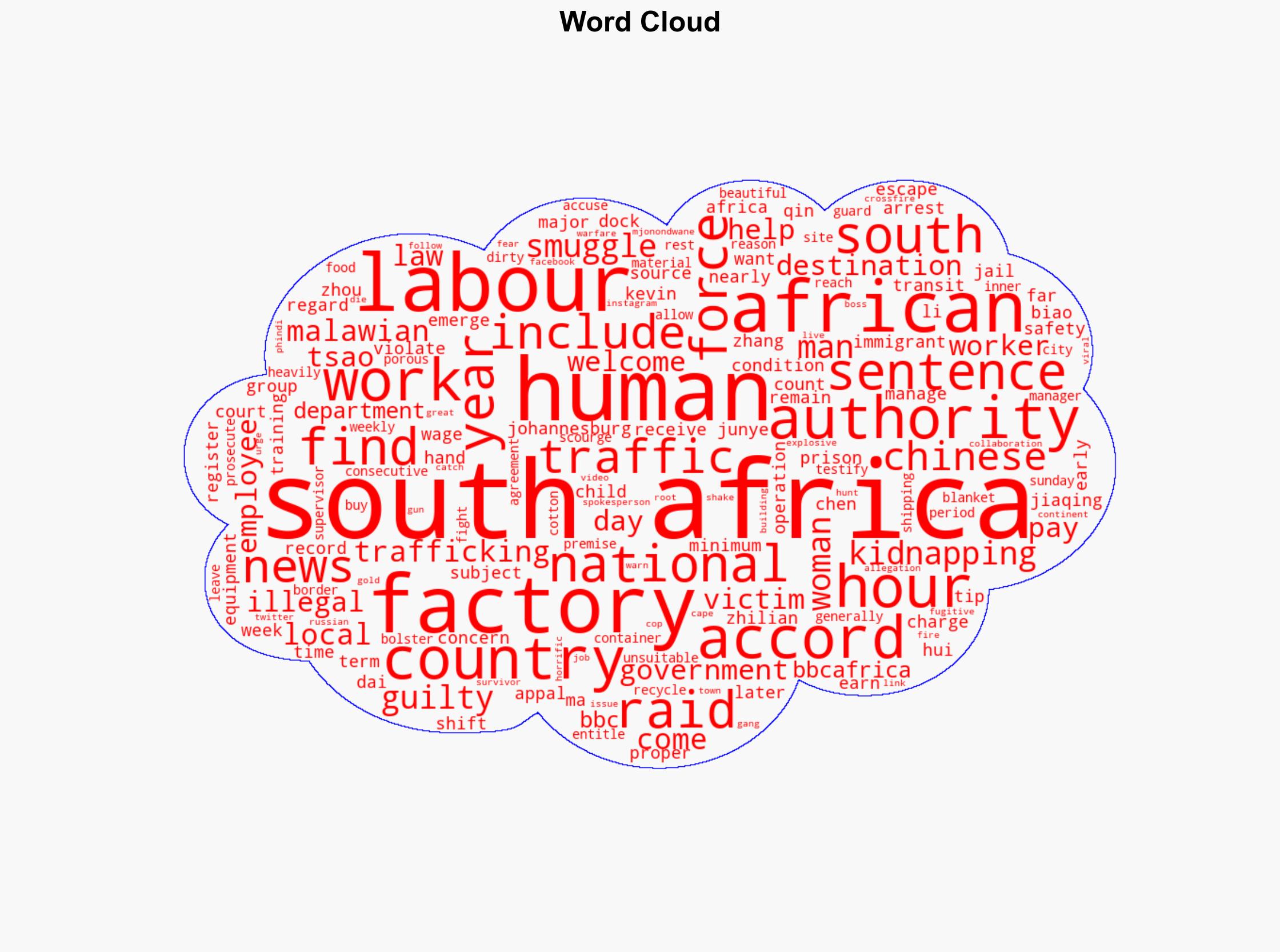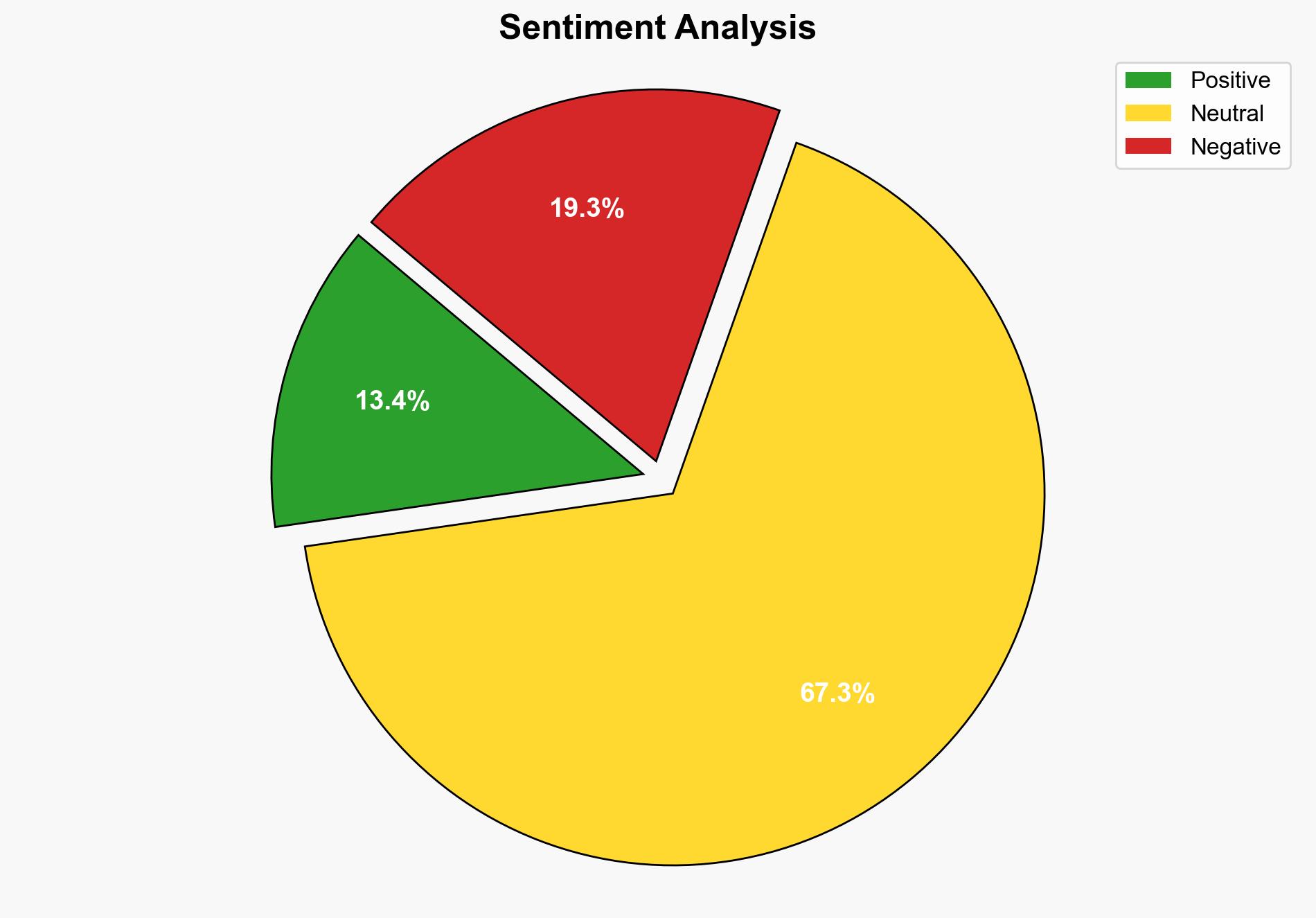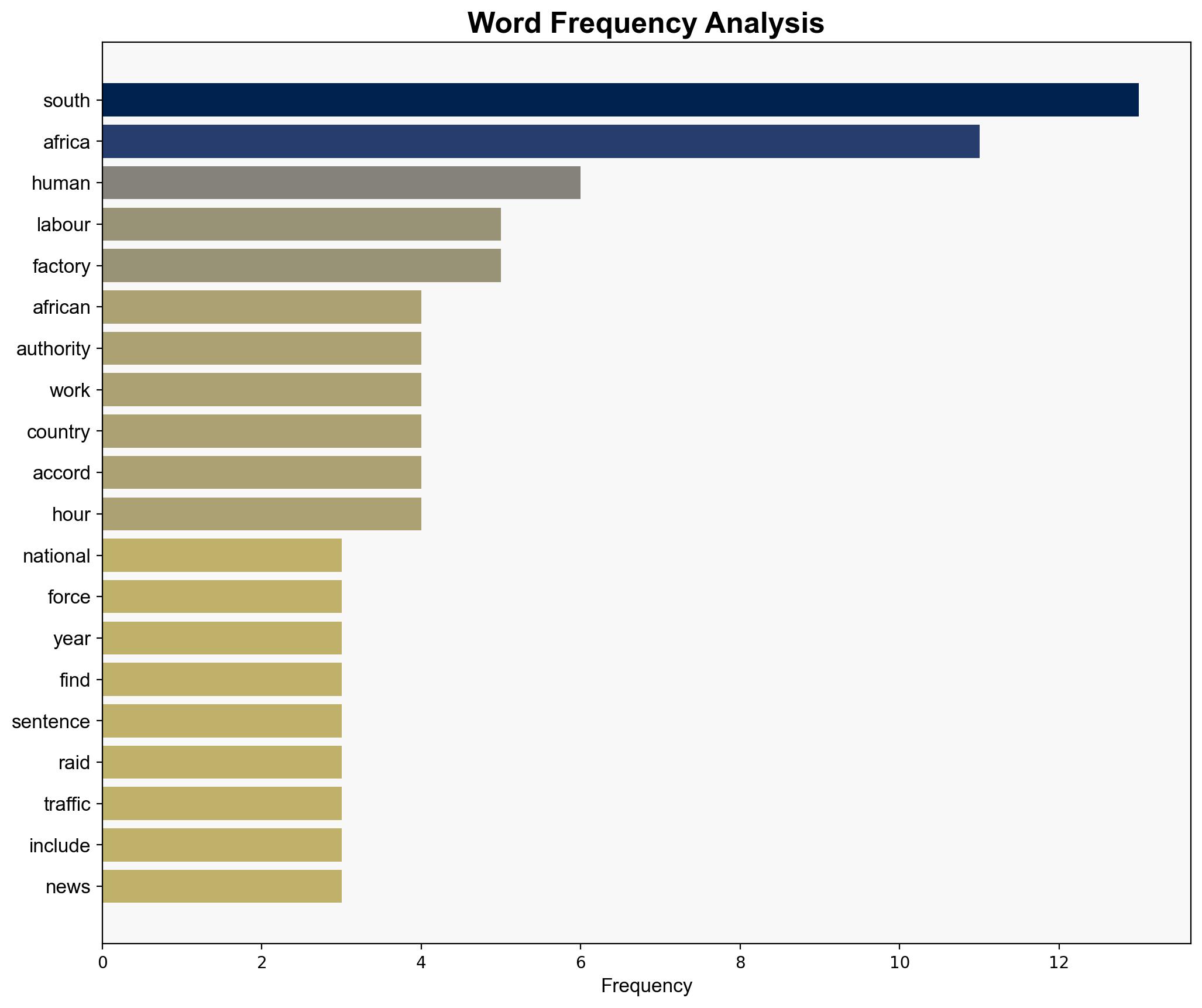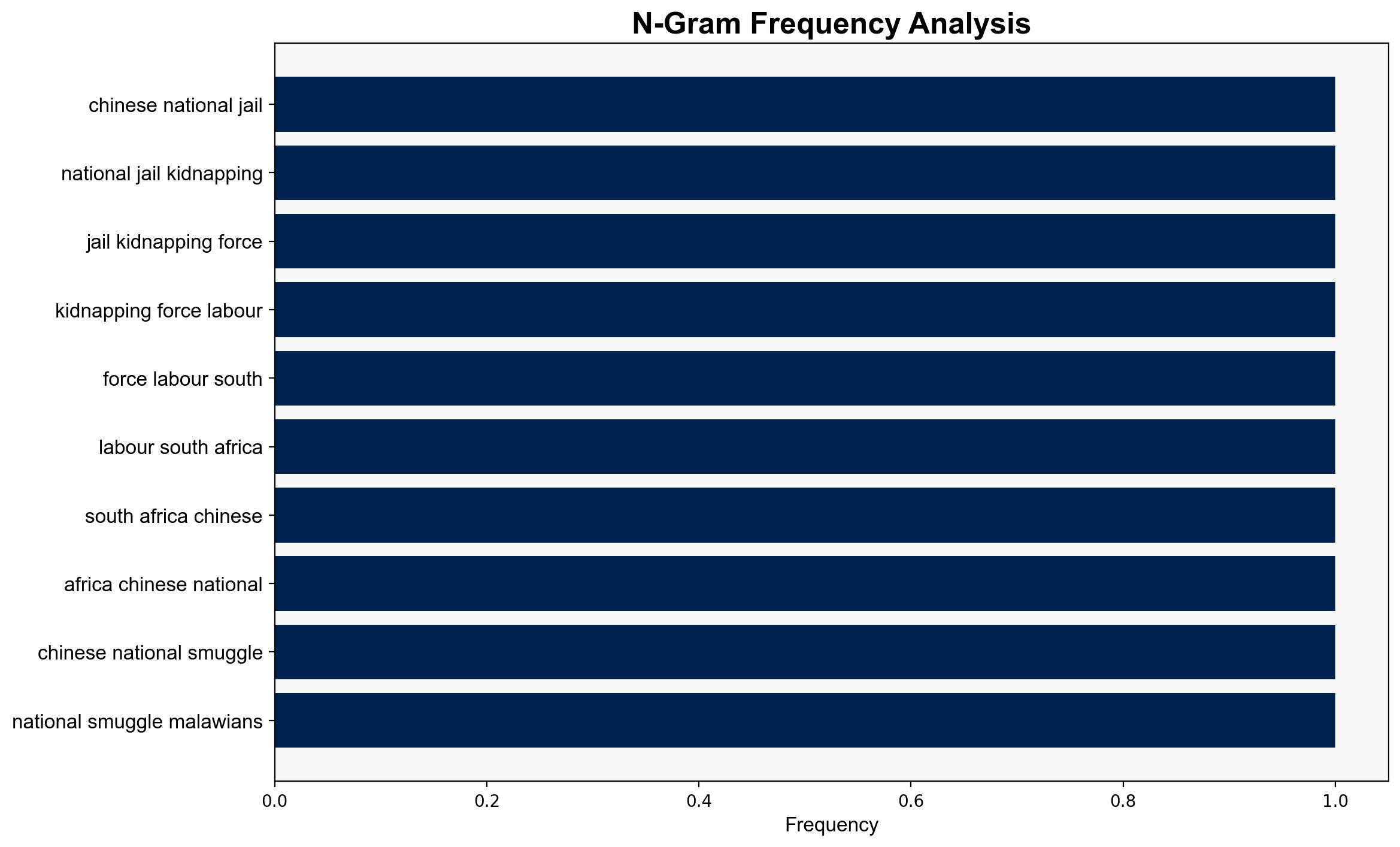Chinese nationals jailed over kidnapping forced labour in South Africa – BBC News
Published on: 2025-09-10
Intelligence Report: Chinese nationals jailed over kidnapping forced labour in South Africa – BBC News
1. BLUF (Bottom Line Up Front)
The most supported hypothesis suggests that the involvement of Chinese nationals in human trafficking and forced labor in South Africa is part of a broader, organized criminal network exploiting porous borders and weak enforcement of labor laws. Confidence level: Moderate. Recommended action: Strengthen inter-agency cooperation and enhance border security measures to disrupt trafficking networks.
2. Competing Hypotheses
1. **Hypothesis A**: The incident is an isolated case of human trafficking by a small group of individuals exploiting specific vulnerabilities in South Africa’s labor and immigration systems.
2. **Hypothesis B**: This case is indicative of a larger, organized criminal network involving multiple actors across borders, systematically exploiting South Africa’s weak enforcement mechanisms and porous borders for human trafficking and forced labor.
Using the Analysis of Competing Hypotheses (ACH) 2.0, Hypothesis B is better supported due to the involvement of multiple individuals, the complexity of operations (smuggling via shipping containers), and the systematic nature of the exploitation (long working hours, inadequate pay, and security measures to prevent escape).
3. Key Assumptions and Red Flags
– **Assumptions**: It is assumed that the individuals involved acted with full knowledge and intent to exploit labor laws. There is also an assumption that the South African legal and enforcement systems are currently inadequate to fully address such crimes.
– **Red Flags**: The lack of detailed information on the broader network, potential underreporting of similar cases, and the possibility of corruption or collusion within local enforcement agencies.
– **Blind Spots**: Limited insight into the connections between these individuals and larger trafficking networks, and the potential involvement of other nationalities or local entities.
4. Implications and Strategic Risks
The case highlights significant vulnerabilities in South Africa’s border control and labor law enforcement, posing risks of increased human trafficking activities. This could lead to economic strain due to the exploitation of labor and potential international reputational damage. There is also a risk of escalating tensions between local and foreign communities, potentially leading to xenophobic violence.
5. Recommendations and Outlook
- Enhance border security and monitoring to prevent illegal entry and smuggling operations.
- Improve inter-agency collaboration, including intelligence sharing between immigration, labor, and law enforcement agencies.
- Conduct public awareness campaigns to educate communities on the signs of human trafficking.
- Scenario-based projections:
- Best: Successful dismantling of trafficking networks through coordinated international efforts.
- Worst: Escalation of trafficking activities leading to increased human rights abuses and regional instability.
- Most Likely: Incremental improvements in enforcement with continued challenges in completely eradicating trafficking networks.
6. Key Individuals and Entities
– Kevin Tsao
– Chen Hui Qin
– Li Jiaqing
– Zhou Ma Biao
– Dai Junye
– Zhang Zhilian
7. Thematic Tags
national security threats, human trafficking, organized crime, regional focus




